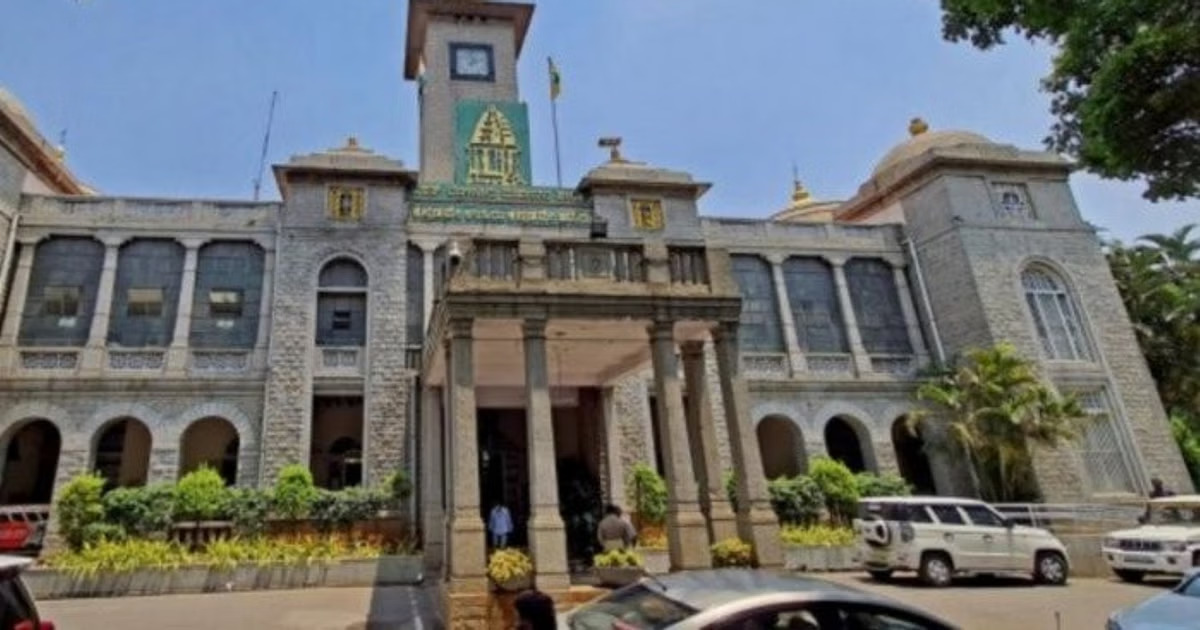The Karnataka state cabinet has approved the acquisition of 134 acres of land for an integrated solid waste management facility in Doddaballapura taluk.
The land, a crucial part of the Bruhat Bengaluru Mahanagara Palike (BBMP)’s strategy to combat the city’s growing waste disposal challenges, was sanctioned during a cabinet meeting held on Thursday. The deal is a major step towards addressing the city’s ongoing waste management crisis, aligning with the state’s broader sustainability goals. The approved land deal consists of three key parts: 38 acres and 18 guntas from Terra Firma Biotechnologies Private Limited, 46 acres and 3 guntas of government land, and approximately 22 acres and 1 gunta leased from local farmers. The acquisition is set to lay the foundation for a state-of-the-art facility aimed at processing and composting Bengaluru’s solid waste. The move follows the Karnataka government’s commitment to addressing the city’s waste management and recycling concerns, which have grown in magnitude due to the city’s rapid urbanisation.
The BBMP plans to use the newly acquired land to build a comprehensive facility that will not only manage waste processing but also focus on composting and recycling. With Bengaluru generating thousands of tonnes of waste daily, this initiative is expected to significantly reduce the environmental footprint of landfills, contributing to the city’s goal of achieving zero net carbon emissions. Furthermore, experts have highlighted that by creating an integrated waste management system, the city can ensure the responsible disposal and treatment of waste, reducing the risks associated with unorganised dumping that often leads to flooding during the monsoon season. The land acquisition will be carried out as per the guidelines of the Right to Fair Compensation and Transparency Act, 2013, ensuring that the process is transparent and compensatory measures are in place for affected landowners. Terra Firma Biotechnologies, the private entity from which part of the land is being acquired, will transfer the land to BBMP, while local farmers who have leased the land to the company will also be compensated directly. This aspect of the project has been a point of focus for the state government, which has committed to ensuring that landowners are fairly compensated for the land being taken from them.
Experts believe that the decision to approve this acquisition will not only provide a much-needed solution to Bengaluru’s waste management problems but will also play a pivotal role in transforming the city into a model of sustainability. The BBMP’s long-term vision for the facility includes not only waste management but also promoting recycling and creating a circular economy for waste materials. The city’s waste, once processed at this facility, will be converted into compost, organic waste, and other reusable products, further reducing the city’s dependence on landfills and incineration plants, both of which contribute significantly to carbon emissions. One of the key factors influencing this initiative is the growing awareness of the environmental impact of waste accumulation. Bengaluru, like many other urban centres in India, has been grappling with mounting waste management issues for years. With increasing urbanisation, the city’s waste disposal systems have struggled to keep pace with the volume of waste being generated. Experts say that integrated waste management facilities, like the one planned in Doddaballapura taluk, are essential to addressing the city’s waste crisis and promoting eco-friendly practices.
The proposed facility will also address the issue of waste segregation at the source, which has been a longstanding challenge in Bengaluru. Currently, only a small fraction of the waste generated in the city is segregated at the household level, which hampers efficient waste processing. The new facility, by integrating advanced technologies and modern waste processing systems, will be equipped to handle both organic and inorganic waste. Experts believe this will reduce the strain on existing landfill sites, which are already operating at capacity and contributing to environmental degradation. Moreover, the acquisition of land for the waste management facility signals a broader shift towards more sustainable urban planning in Bengaluru. With rising concerns about air and water pollution, coupled with a growing population, the city is under increasing pressure to develop sustainable and green infrastructure. This acquisition not only supports the BBMP’s waste management goals but also aligns with the Karnataka government’s commitment to addressing climate change and reducing carbon emissions across urban areas.
Local residents and environmentalists have welcomed the move, noting that it could help restore Bengaluru’s reputation as a clean and green city. The initiative is expected to generate jobs in the area as well, boosting the local economy in Doddaballapura taluk. Additionally, experts are hopeful that this will encourage other urban local bodies across the state to adopt similar waste management strategies, creating a model for other cities in Karnataka and beyond. While this acquisition marks a crucial milestone in Bengaluru’s waste management efforts, experts stress that it is just one part of a much larger challenge. Effective waste management requires public participation, long-term investment in infrastructure, and a change in consumer behaviour. As Bengaluru embarks on this ambitious journey towards sustainable waste management, it will need continued innovation and collaboration between the government, private sector, and citizens to ensure its success.
Also Read : https://urbanacres.in/bengaluru-struggles-with-waste-management-challenges/


